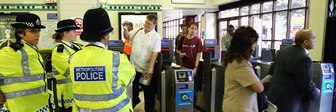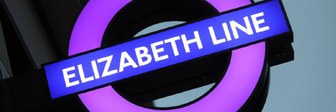Ahead of the annual outcry over rail fare increases, YouGov shows that freezing fares would benefit more households with higher incomes than lower incomes
With rail fares set to go up on 2nd January, the media will soon be awash with their annual tales of rail commuter outrage and renewed calls for fares to be frozen or cut.
Many Britons would be forgiven for wondering what the fuss is all about. New YouGov Profiles data from more than 25,000 people shows that four in ten Brits (39%) didn’t take a single train journey* in the last 12 months. The majority (54%) took no more than two train journeys (i.e. one return trip or two one-way trips).
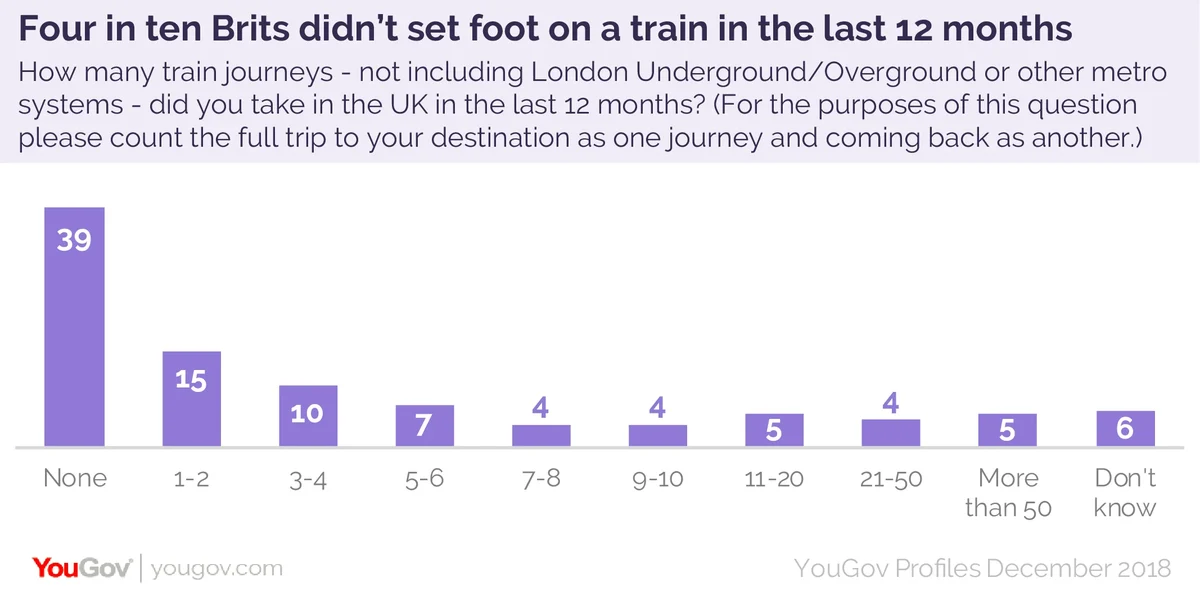
In fact, only 9% of people took more than 20 train journeys last year, and just 5% more than 50.
Given that frequent rail travel is the preserve of such a small proportion of the population, why does the issue gather so much attention?
Politicians from both main parties wish to see rail fares kept down. But at a time when public spending is still restrained, such a move has been criticised as mainly helping the already affluent.
The most frequent rail users are indeed disproportionately more affluent.
More than four in ten (42%) of those who have made more than 50 train journeys in the last year live in a high income household (i.e. which we have classified as any household with a combined income of £40,000 or more). Just 10% live in a low income household – which we have classified as one where the combined income is less than £20,000 a year.**
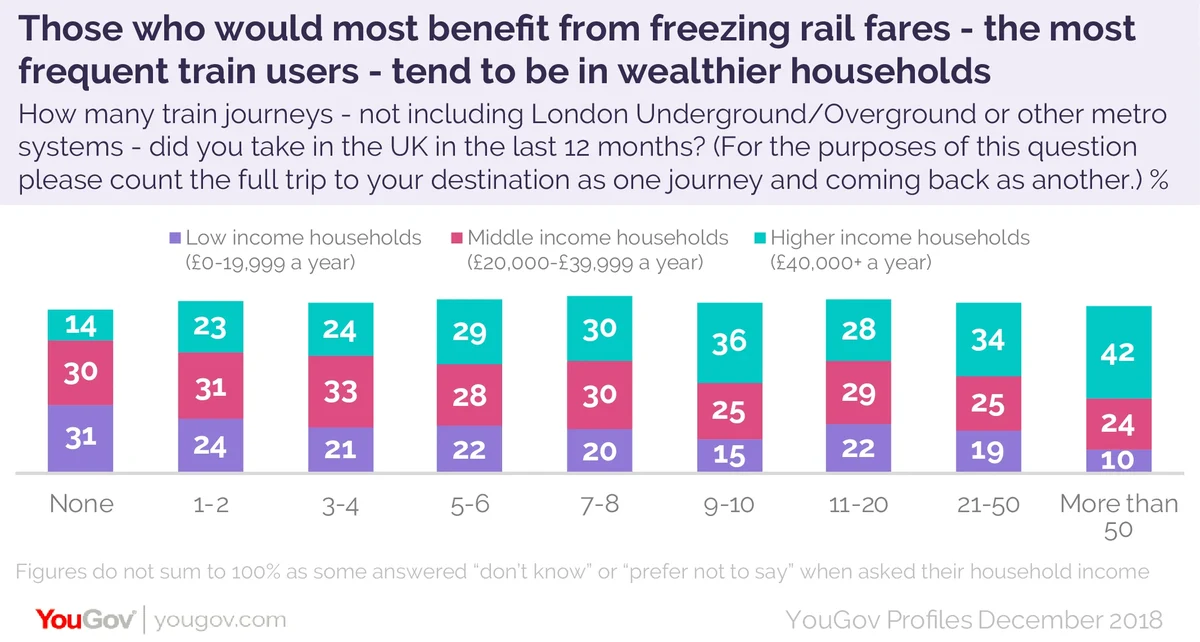
By contrast, only 14% of those who never use the train are in higher income households, while 31% are in lower income households.
So if government spending – either in terms of finance or attention given – on rail fares is not optimal, what should they focus on?
Separate YouGov Profiles transport data reveals that people in low income households are much more likely to have travelled by car (75%) or bus (60%) in the last year than they are to have travelled by train (41%).***
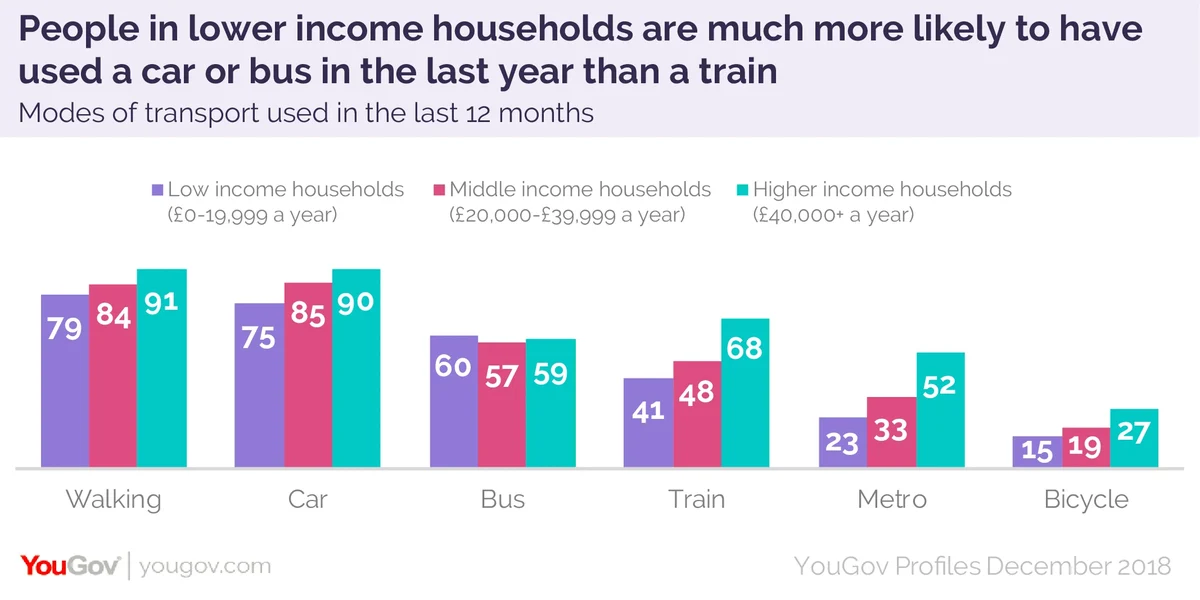
Given that fuel duty has remained frozen for the last nine years, it is fair to say that car users are being shown some love by the government.
This leaves buses. A previous YouGov study found that reducing bus fares was the policy that the public thought would be most likely to help low income people in particular.
Yet recent figures show that more than 3,000 bus routes have been cut back or withdrawn in England and Wales over the past eight years.
While those of pensionable age already receive free bus travel, working age people receive no such benefit. Local councils are responsible for arranging contracts with bus services, but given the squeeze on local government funding any effort to freeze or bring down bus fares nationwide would have to be facilitated by central government.
Younger Brits are more frequent rail users, but income is still a key factor
Aside from the fares increase, 2 January also marks the introduction of the long-awaited 26-30 railcard – first announced in the 2017 Budget – will become available.
The results show that 62% of Britons in this age group used the train at least once in the last year – a figure virtually identical to that of 18-25 year olds (63%) who are already covered by an existing railcard.
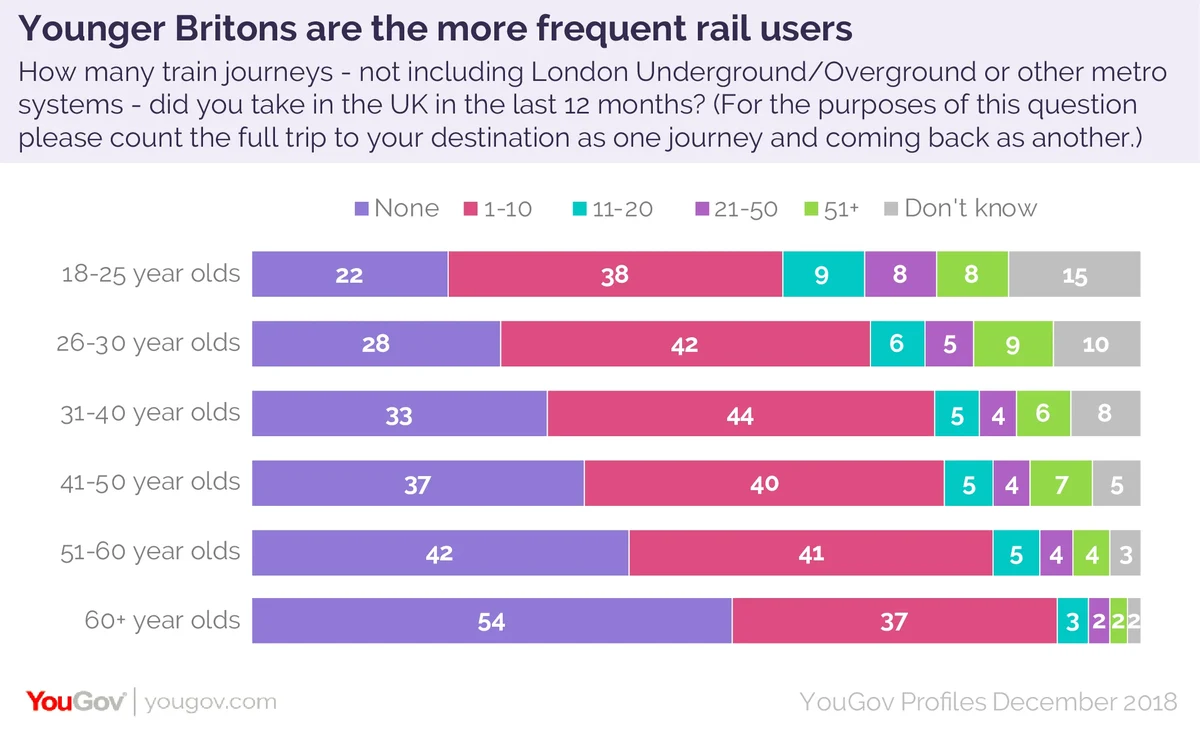
However, so too did 59% of those aged 31-40, who could be forgiven for feeling aggrieved that their train journeys will not be similarly discounted.
Again, it is the higher earners among this newly subsidised age group who most benefit. Only 13% of 26-30 year olds in a high income household didn’t take the train in the last year, compared to 40% of those in low income households. Similarly, while only 1% of 26-30 year olds in a household earning less than £20,000 a year made more than 50 train journeys last year, this rises to 16% of those in households earning £40,000 or more.
Railway nationalisation
Rail re-nationalisation has become a more realistic prospect since Jeremy Corbyn took over the Labour leadership and committed in the 2017 manifesto to bringing the industry back into public ownership.
It is a popular policy, with 56% of Britons in favour and only 18% specifically opposed. It is notable, however, the public’s stance on this issue seems to be purely ideological, and does not seem to be impacted by how often people actually travel by train.
Those who are in favour of railway re-nationalisation use trains about the same amount as those who are against. Among those with an opinion on rail nationalisation, among all levels of train use frequency support stands at between 73-79%, while only 21-27% are opposed.
Close to four in ten (38%) of those who are pro-nationalisation say they haven’t used a train in the last 12 months, as do 36% of those who are anti-nationalisation.
*For the purposes of this survey, respondents were told to count the full trip to their destination as one journey and coming back as another. Therefore a return trip would count as two train journeys. We also asked respondents not to include journeys on the London Underground, London Overground or any other metro systems
**Household income figures do not sum to 100% as around a quarter of respondents answered “don’t know” or “prefer not to say” when asked their household income
***This is a separate dataset to that used in the rest of the article, where the definition of “train” includes the London Overground
Photo: Getty


